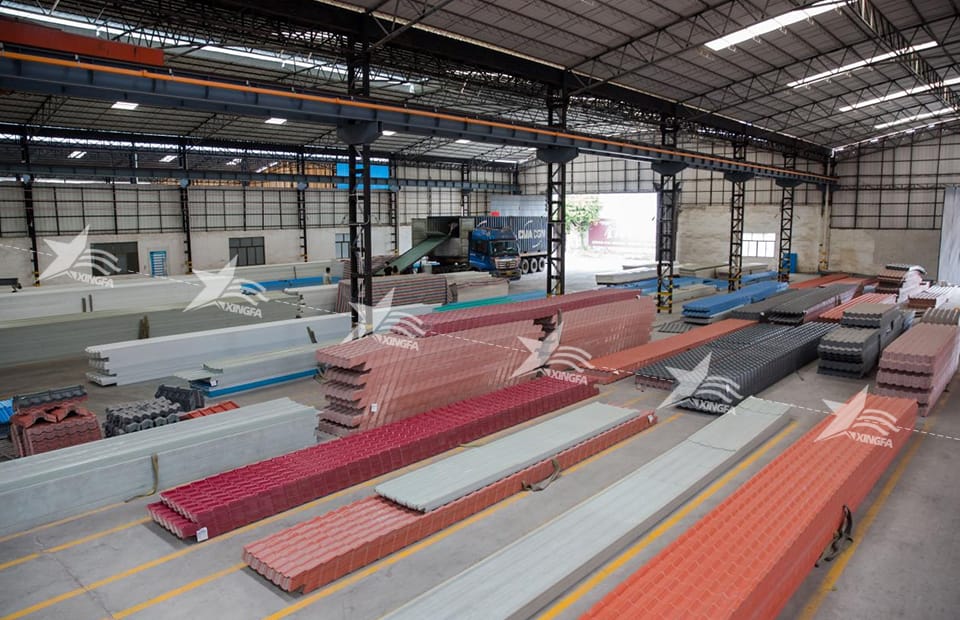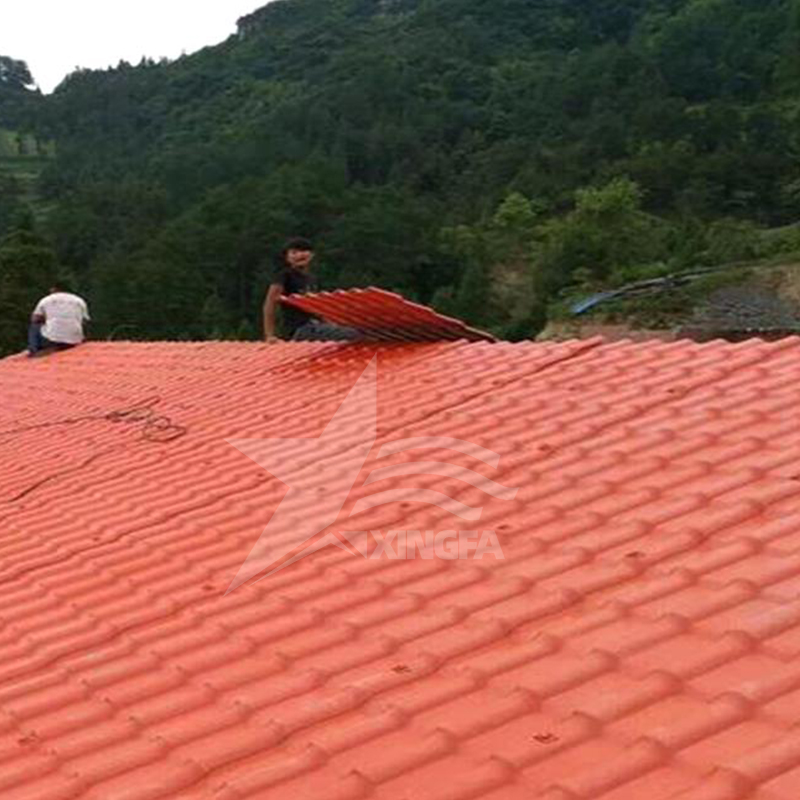As a common roofing material, synthetic resin tiles are favored by consumers for their beauty, durability, and easy maintenance. However, recently some friends have reported issues of deformation and sagging of synthetic resin tiles shortly after installation. This not only affects the aesthetics of the roof but may also lead to serious consequences such as water leakage. Today, we will delve into the reasons for the deformation and sagging of synthetic resin tiles.
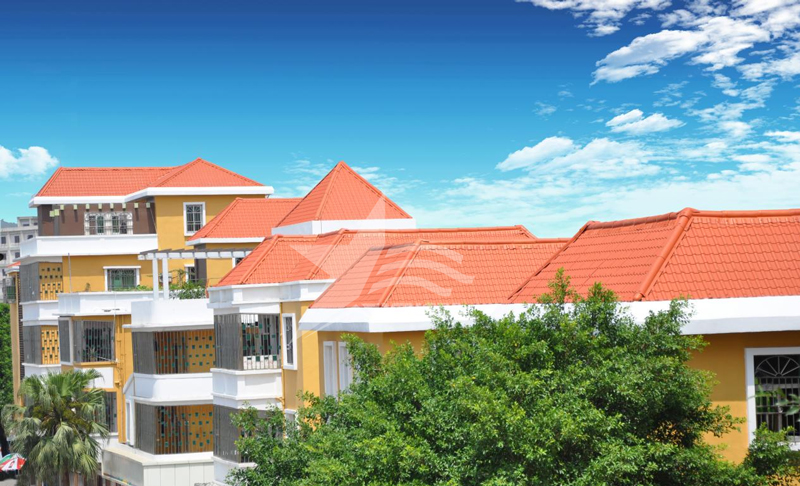
- Material quality issues:
Cutting corners is one of the main reasons for substandard product quality. Some synthetic resin tile manufacturers may use unclear quality recycled materials or add excessive fillers and plasticizers, causing the product to become soft at lower temperatures. Particularly for dark-colored tiles (which absorb heat more), under prolonged exposure to sunlight, deformation and sagging issues are likely to occur, potentially leading to quality problems such as water leakage.
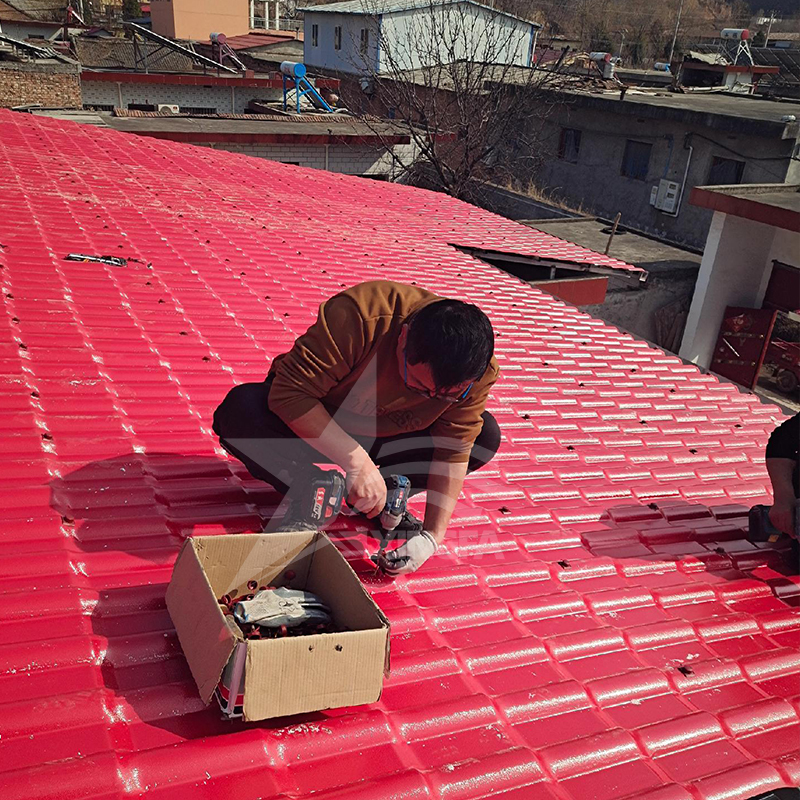
- Installation issues:
The installation process of synthetic resin tiles is crucial for their stability. Improper installation may result in tiles not being securely fixed, leading to deformation and sagging issues. The following are several factors that may cause installation problems:
– Excessive spacing between purlins: Purlins are crucial support structures for installing synthetic resin tiles. The reasonable range for purlin spacing during tile installation should be between 600-800mm. Excessive spacing increases the stress area of the tiles, making them prone to deformation and sagging.
– Improper fixing method: The use of unsuitable adhesives or incorrect installation techniques can result in poorly secured tiles, leading to deformation and sagging issues. It is important to choose adhesives suitable for synthetic resin tiles and ensure proper fixing methods during installation.
– Inadequate bonding at stress points: When subjected to stress, the bonding at stress points of synthetic resin tiles must be secure. Inadequate bonding at stress points can lead to displacement and deformation under stress.
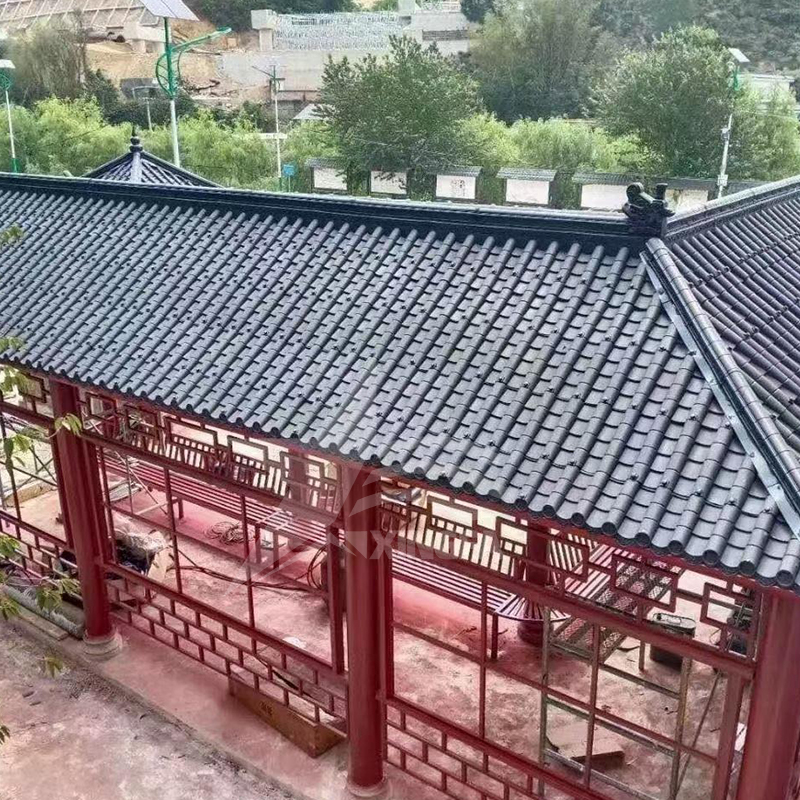
Therefore, to avoid these issues, it is advisable to choose synthetic resin tiles from manufacturers with quality assurance. During installation, strict adherence to installation standards is necessary, preferably by experienced professionals.


